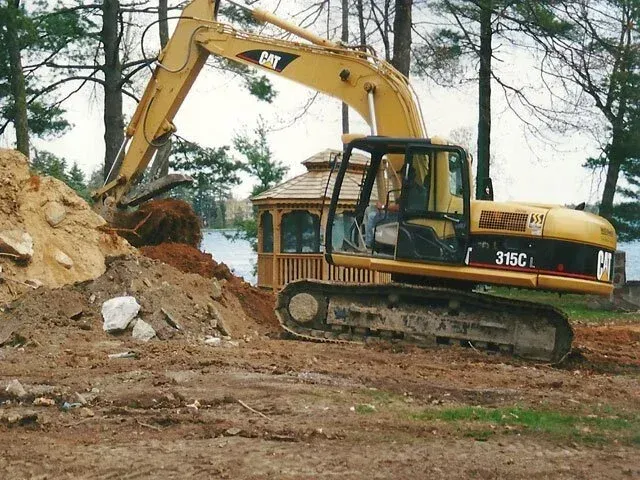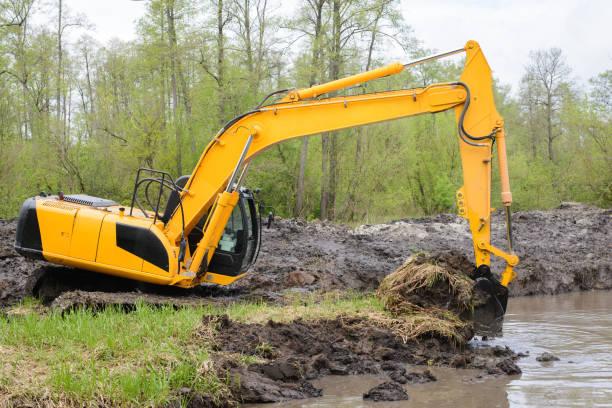
Utility Installation Methods in Denton, TX & Surrounding Areas
Utility installation is a critical part of property development in Denton, TX, and nearby towns such as Corinth, Krum, Sanger, Aubrey, Little Elm, Lake Dallas, Lewisville, and Flower Mound. From water and sewer lines to storm drains and underground electrical conduits, professional contractors ensure safe, reliable, and compliant utility systems. Below are answers to some of the most common questions about utility installation in the Denton area.
What Do Utility Contractors in Denton, TX Do?
Utility contractors in Denton handle the planning, installation, and upkeep of essential underground and above-ground systems. Their work often involves trench excavation, grading, pipe placement, conduit installation, and the construction of inlets and manholes. After installation, they restore sites to ensure safety and functionality. These professionals make sure that homes, businesses, and public spaces operate smoothly while complying with local and state codes.
Why Is Proper Utility Installation Important for Homes and Businesses?
Correctly installed utilities prevent flooding, water leaks, sewer backups, and electrical hazards. For Denton homeowners, this means protection for their foundations, landscaping, and driveways. For commercial properties in towns like Lewisville and Flower Mound, proper utility installation safeguards parking lots, streets, and buildings from water-related damage and service interruptions.
How Do Denton Utility Contractors Ensure Safety and Compliance?
Contractors in Denton follow regulations set by the Texas Commission on Environmental Quality (TCEQ) and city codes. Safety protocols include trench shoring to prevent collapses, barricading work areas, and using proper protective equipment. They also use erosion control and sediment barriers to protect the environment and ensure community safety during construction.
What Utility Installation Methods Are Commonly Used in Denton, TX?
Several installation methods are used depending on project needs. Open-cut excavation is the traditional approach, where trenches are dug for water, sewer, and storm drain systems. Directional drilling, also called trenchless technology, is another option that allows utilities to be installed underground with minimal surface disruption. Storm drainage systems such as French drains, curb inlets, and catch basins are installed to manage runoff, while underground conduits are placed for electrical and telecommunication lines in both residential neighborhoods and commercial developments.
Do Grading and Excavation Play a Role in Utility Installation?
Yes, grading and excavation are essential steps in any utility project. Grading ensures that the land has the correct slope for water to flow naturally into drainage systems. Excavation provides the trenches needed for installing pipes, conduits, and catch basins. In Denton, Corinth, and Sanger, these steps are particularly important for preventing standing water and creating long-lasting, efficient utility systems.
What Factors Affect the Cost of Utility Installation in Denton, TX?
The cost of utility installation varies based on project size and design, with larger commercial projects generally requiring more labor and materials than smaller residential ones. Soil conditions and trench depth also play a major role, as rocky or clay-heavy soil can make excavation more difficult. The choice of materials, whether PVC, HDPE, or concrete, influences the price, and additional expenses may include permits, erosion control, and restoring landscaping or pavement. For example, a small residential project in Aubrey or Lake Dallas may only cost a few thousand dollars, while a larger commercial system in Lewisville or Flower Mound could require a much higher budget.
How Long Does Utility Installation Take?
The timeline depends on the type and size of the project. A small residential utility connection in Denton may be completed within a few days, while a larger sewer or drainage system in towns like Krum or Little Elm could take several weeks. Weather conditions and permit approvals can also affect how long the project will take.
Why Choose Local Utility Contractors in Denton, TX and Surrounding Areas?
Hiring local contractors ensures you’re working with professionals familiar with Denton County’s unique soil conditions, seasonal flooding risks, and municipal building codes. Their local knowledge allows them to anticipate challenges like clay-heavy soils and drainage issues while delivering efficient and compliant installations. Contractors from Denton, Corinth, Krum, Sanger, and surrounding towns bring valuable expertise and faster response times compared to non-local providers.
What Materials Are Commonly Used in Utility Installations?
Contractors in Denton use a variety of materials depending on project requirements. PVC and HDPE pipes are lightweight, durable, and cost-effective for residential systems, while reinforced concrete is often used for larger-scale commercial or municipal projects that need extra strength. Electrical and telecommunication conduits are typically made of PVC or metal, ensuring reliable service for both homes and businesses.
How Do Professional Utility Installations Add Long-Term Value to Properties?
Properly installed utility systems reduce the risk of water damage, soil erosion, sewer backups, and electrical issues. This protects structural integrity, lowers maintenance costs, and improves property value. In Denton, Flower Mound, and Lewisville, well-planned drainage and utility systems also enhance curb appeal by keeping landscapes intact and preventing flooding.
Final Thoughts
Utility installation in Denton, TX, and surrounding towns ensures long-term protection, compliance, and functionality for both residential and commercial properties. By using professional excavation, grading, and advanced installation methods, local contractors deliver safe, efficient, and durable solutions that protect your investment and support community infrastructure.
What utilities do contractors install in Denton, TX?
Contractors install water lines, sewer systems, storm drains, and underground electrical and telecommunication conduits.
How much does utility installation cost in Denton, TX?
Costs vary depending on project size, soil conditions, materials, and permits. Small residential jobs may cost a few thousand dollars, while larger commercial projects in towns like Lewisville or Flower Mound are more expensive.
How long does utility installation usually take?
Residential connections often take a few days, while larger drainage or sewer networks in Denton or nearby towns like Krum and Little Elm may require several weeks.
Do I need permits for utility installation in Denton?
Yes, most projects require permits from the city of Denton or Denton County to ensure compliance with local regulations.
What is the benefit of hiring a local contractor in Denton?
Local contractors know the soil conditions, seasonal flooding risks, and building codes, which helps them design efficient and compliant utility systems.

